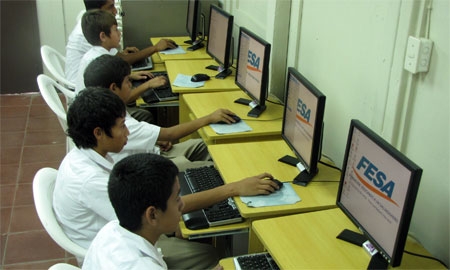Providing good education is key to any country that wants to improve its people’s lives. FESA puts a special emphasis on schooling, both on the practical side, by building new facilities, and in its capacity as a think tank, where it looks for ways to help improve Angola’s school system.
During the civil war, which started in 1975, the country’s rudimentary education system fell apart, and large swathes of the population grew up illiterate or undereducated. After the end of the conflict, the government faced the problem of educating both its children and many of its adults at the same time.
FESA has stepped in to help out by studying these problems and suggesting ways to handle both challenges at the same time, recognising that illiteracy can hold back millions of otherwise hard-working, productive adults, all of whom can contribute more to Angola’s economic growth if educated.
The foundation’s help goes beyond theory, of course. FESA has contributed to Angola’s basic educational infrastructure by building new classrooms, and has provided more advanced aid as well, by supporting a programme to help students learn how to use common computer programs.
The “Computers for Schools” programme has been a success. In its first year of operation, in 2007, more than 1,500 students studying at two schools in the town of Samba completed the course, and since then the programme has expanded to other schools, and given advanced training to many more.

0 COMMENTS